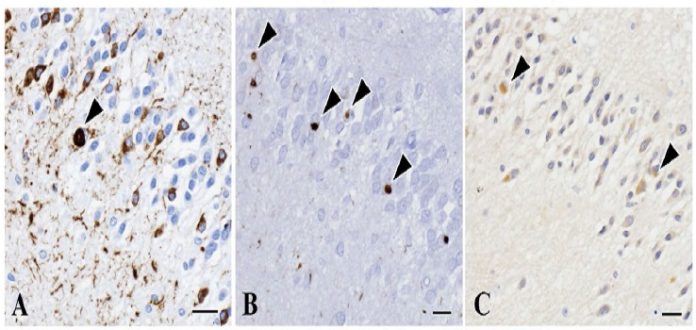Transformations have been found in the bassoon (BSN) quality, which is included with the focal sensory system, in patients with indications like, yet unique in relation to, an uncommon mind issue called progressive supranuclear paralysis (PSP).
PSP, a type of Parkinson’s sickness, is frequently hard to analyze in light of the fact that it can influence individuals in various ways. Significant issues frequently incorporate trouble with strolling and adjust notwithstanding a decrease in psychological capacities, for example, frontal flap brokenness.
A group of Japanese analysts examined patients whose side effects took after PSP as well as Alzheimer’s sickness. In spite of likenesses in the side effects, nitty-gritty neurotic investigations demonstrated no similarity to either sickness, which provoked the group to additionally look into the new malady’s basic instrument.
They initially investigated the genomes of a Japanese family with a few individuals showing PSP-like side effects. They distinguished a transformation in the BSN quality just in relatives with indications. These people did not have transformations in the 52 different qualities related to PSP and other neurological issues, for example, Alzheimer’s and Parkinson’s. This was the first run through BSN quality is related to a neurological issue.

The analysts additionally recognized three different transformations in the BSN quality in four out of 41 different patients showing sporadic, or non-familial, PSP-like manifestations. None of the BSN changes were identified in an arbitrary example of 100 sound people, underscoring the solid contribution of BSN transformations in the ailment.
A post-mortem examination done on one of the relatives with the BSN transformation demonstrated an aggregation of a protein called tau in the mind, which isn’t found in an ordinary cerebrum. The scientists trust that the BSN change is associated with the tau aggregation, which could cause the improvement of PSP-like indications.
A test presenting a changed rodent BSN quality to refined cells additionally recommended that the transformation causes the gathering of tau. Correspondence between nerve filaments could likewise be influenced, as BSN protein assume a part in it.
Associate Professor Ichiro Yabe of Hokkaido University who led the study said, “This is a peculiar neurodegenerative disorder which involves mutations in the BSN gene and tau accumulation, but differs from any known disease, including dementia, Parkinson’s, and even PSP. Patients with PSP-like symptoms and other neurodegenerative disorders should be analyzed for BSN mutations to fine-tune their diagnoses.”
Reference: Yabe I. et al., Mutations in bassoon in individuals with familial and sporadic progressive supranuclear palsy-like syndrome. Scientific Reports, January 16, 2018.
